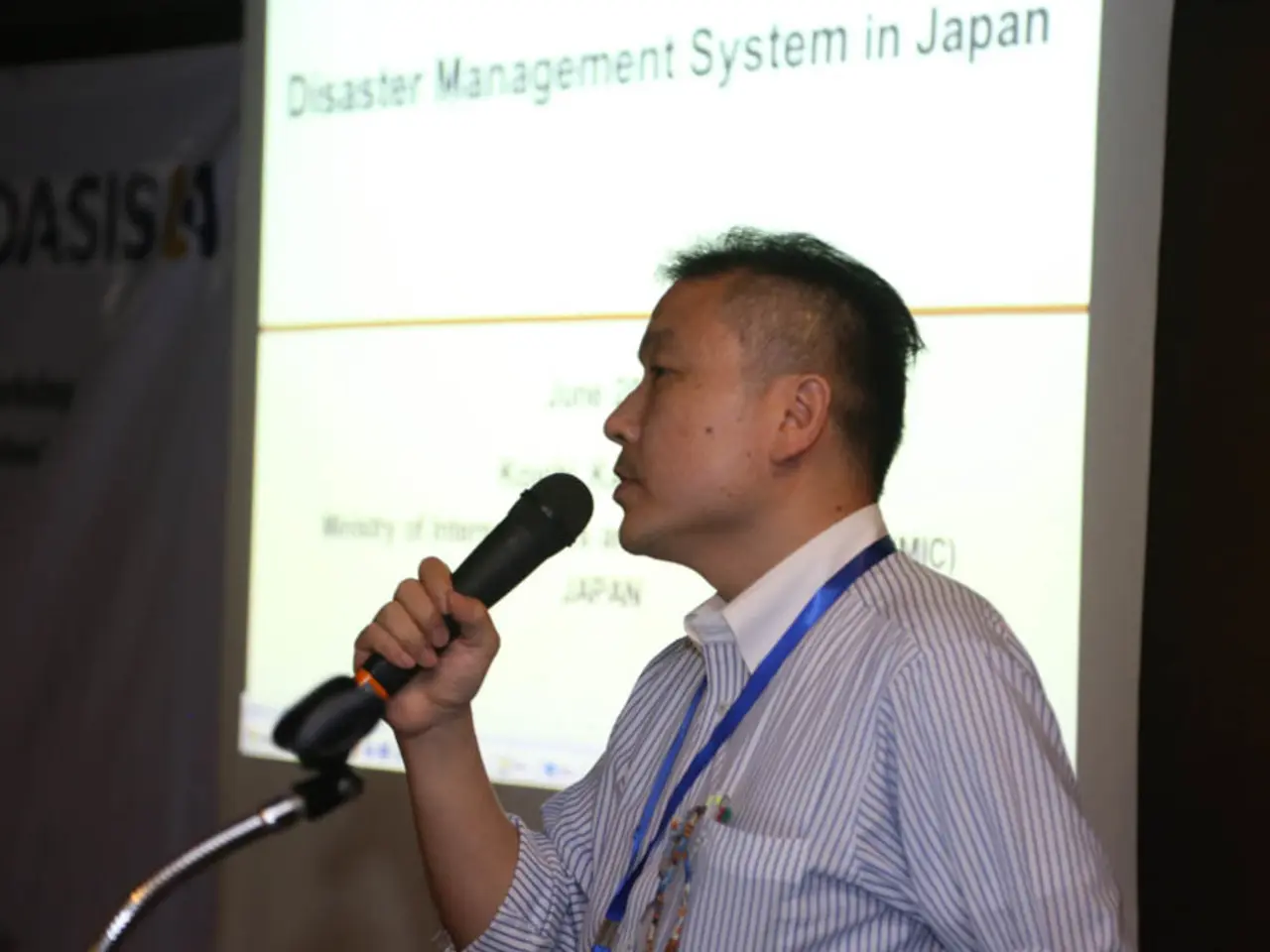Struggling with History: Japan's 80-year Journey Since World War II Ending
The debate over how to interpret and present Japan's wartime past continues to be a deeply contentious issue in Japan, often referred to as the "history wars." This internal conflict reflects intense disagreements over the interpretation of Japan's role during World War II.
Historical revisionist groups, once fringe far-right voices, have gained prominence and influence in recent years. These groups promote narratives that downplay or deny the brutality and war crimes committed by Imperial Japan. They argue that Japan was merely mimicking Western imperialism and was forced into militarism for self-defense.
One of the key figures in this debate is Shunichi Moteki, who leads a group that contends that laborers from Korea and Taiwan willingly toiled in mines, shipyards, or factories during the conflict. Moteki's group also claims that Allied prisoners of war were well treated, and Imperial Japan "liberated" the countries it conquered. They even argue that World War II was not a war of aggression started by Japan but an act of self-defense.
However, these revisionist perspectives often reject full condemnation of militarism and support Japan’s remilitarization by opposing Article 9 of the constitution, which renounces war. This stance has contributed to a shift away from the postwar consensus of explicit remorse, as seen in gradually weakening official statements of apology by Japanese prime ministers over the decades.
Internationally, this stance remains a major diplomatic source of friction with countries like China and both Koreas, which suffer from painful memories of Japanese occupation. The deniers often claim that the hundreds of trials carried out by the Allies prosecuting Japanese troops for war crimes were merely "victor's justice."
Within Japan, these debates highlight ongoing struggles to reconcile national identity with historical accountability, further complicated by the enduring legacy of imperial ideology and the complex role of figures like Emperor Hirohito in wartime policies.
Notable figures from Japan's past who were involved in war crimes include Koki Hirota, who was charged with sanctioning the Nanjing massacre and was the only civilian politician to be hanged in 1948. Hideki Tojo, former Prime Minister of Japan, was accused of being responsible for the killing of 4 million Chinese and conducting biological experiments on prisoners of war. He was hanged in 1948 as well.
As August 15th marks the 80th anniversary of Japan's unconditional surrender and the end of World War II, the debate over Japan's wartime past continues to resonate, fueling tensions in both domestic memory politics and international relations.
Moteki, for instance, will go to the Yasukuni Shrine on August 15 to pay his respects to war dead, a move that is controversial as the shrine honours Class-A war criminals. Moteki's organization also translates Japanese nationalist works of historical revisionism into English, further spreading these controversial perspectives.
The denial of Japan's wartime atrocities and the push for a more assertive military posture have been met with criticism, with some arguing that these actions undermine Japan's commitment to peace and reconciliation. The ongoing "history wars" in Japan serve as a reminder of the complex and contentious nature of historical interpretation and the importance of acknowledging and learning from the past.
- The ongoing debate about Japan's wartime past, known as the "history wars," is a significant issue in Japan, echoing deeply in international relations, especially with countries like China and both Koreas.
- Shunichi Moteki, a key figure in the history wars, leads a group that disputes theAccounts of wartime labor conditions and treatment of prisoners, claiming they were well treated and that Imperial Japan "liberated" the countries it conquered.
- Beyond Japan, these revisionist perspectives fuel diplomatic friction, with deniers of the war crimes often referring to the trials carried out by the Allies as "victor's justice."
- Internally, the history wars highlight Japan's struggles to reconcile its national identity with historical accountability, complicating matters through the legacy of imperial ideology and the role of figures like Emperor Hirohito.
- Notable individuals from Japan's past involved in war crimes, such as Koki Hirota and Hideki Tojo, faced severe consequences for their actions; Hirota was hanged in 1948 for sanctioning the Nanjing massacre, and Tojo was executed the same year for the killing of 4 million Chinese and biological experiments on prisoners of war.
- As August 15th marks the 80th anniversary of Japan's unconditional surrender, the debate persists, fueling tensions in domestic memory politics and international relations.
- Critics argue that Moteki's visits to the controversial Yasukuni Shrine and his organization's translation of nationalist works into English further spread these controversial, revisionist perspectives, potentially undermining Japan's commitment to peace and reconciliation.
- The denial of Japan's wartime atrocities and support for a more assertive military stance serve as a potent reminder of the intricate nature of historical interpretation, emphasizing the importance of acknowledging and learning from the past.








